
There is a very good chance that if you’re reading this, you’ve played or perhaps just heard of Immortality, Half Mermaid’s new interactive film or video game, depending on how you look at it.
“I believe, fundamentally, it is a game. But I also think it doesn’t necessarily matter,” says Natalie Watson, a producer on Immortality and one of the three founders of Half Mermaid.
Sam Barlow, a fellow founder of Half Mermaid, isn’t quite so quick to agree Immortality is, in fact, a game.
“It’s difficult. I think ‘game’ is a terrible choice [of words] that we’ve ended up with to describe a plethora of things.”
Let’s back things up a bit. Immortality, which was released on 30 August through Steam, Xbox Game Pass, Steam and GOG, is an interactive film/video game in which the player is presented with a grid of clips.
These clips include scenes from three films: Ambrosio, Minsky and Two Of Everything. All these films star Marissa Marcel, but none of them were ever released and Marcel has disappeared without a trace. The player’s job is to find out what happened to her by watching and organising the footage, using a match cut mechanic which allows the player to jump from clip to clip.
Immortality is without a doubt challenging. The amount of information presented to the player combined with the initial confusion is a lot, especially if you’re used to more active games where you collect items, explore and generally have more to do with the narrative.

I put this to Barlow; I found the game addictive, but overwhelming and it led me to think about my own participation in narratives, games or cinema.
“That initial overwhelmingness is an interesting thing to me. And obviously, it’s possible to scare people away with that. You’ve got to push through this wall of boringness to find the secrets behind it. Human beings love pattern recognition, we love to put a jigsaw together, we love to make a story out of it,” Barlow muses and Watson agrees.
“We start off with showing everything chronologically as it was shot, which I think is a really interesting place to start off, because you’re inundated with this amazing treasure trove of footage. The tutorial does a really good job of disorienting you, and having you re-work your expectation for how you’re going to navigate through this footage. It’s not just a hard drive with all of this information like in Sam’s past games, where everything is there. It’s even more nonlinear than before. We want you to move in unexpected, surprising, disorienting, and unsettling ways.”
Barlow’s previous two games, Her Story and Telling Lies, like Immortality, are based on uncovering bits of information and making sense of it, finding a story within several hours of seemingly boring footage. Immortality is by far Barlow’s most ambitious attempt at something much more challenging and profound.

Sam Barlow
“It definitely was a conscious act to be ambitious in several ways here because thinking about those movies I grew up with, even if you don’t hit everything you need to hit, like the idea of swinging for the fences seemed interesting and exciting.”
Barlow doesn’t consider Her Story and Telling Lies films and calls Immortality ‘novelistic’ in its approach to the story. He also says Immortality is his attempt to tell a much bigger, personal story. “There’s a part of me that was responding to the Marvelisation of everything. 75% of the movie screens are going to be playing Marvel stuff. They’re telling us huge stories that in some ways are quite shallow or don’t feel personal.”
Barlow mentions directors Nic Roeg, Ken Russell, Peter Greenaway and Derek Jarman as influences. One of the press materials I was sent mentioned that Immortality is an attempt to “deconstruct cinema” so I ask Watson if this was in terms of the themes and the games narrative, as the player is privy to the entire filmmaking process, or if it’s more to do with the game’s format?.
“Narratively, there were so many different aspects of film history that Sam wanted to interrogate. That’s definitely a huge aspect of what it means to deconstruct film; exploring these different film eras, exploring these different genres, and their histories, utilising different film techniques, all the different aspect ratios that were significant to each era, as well as camera techniques, lighting techniques.
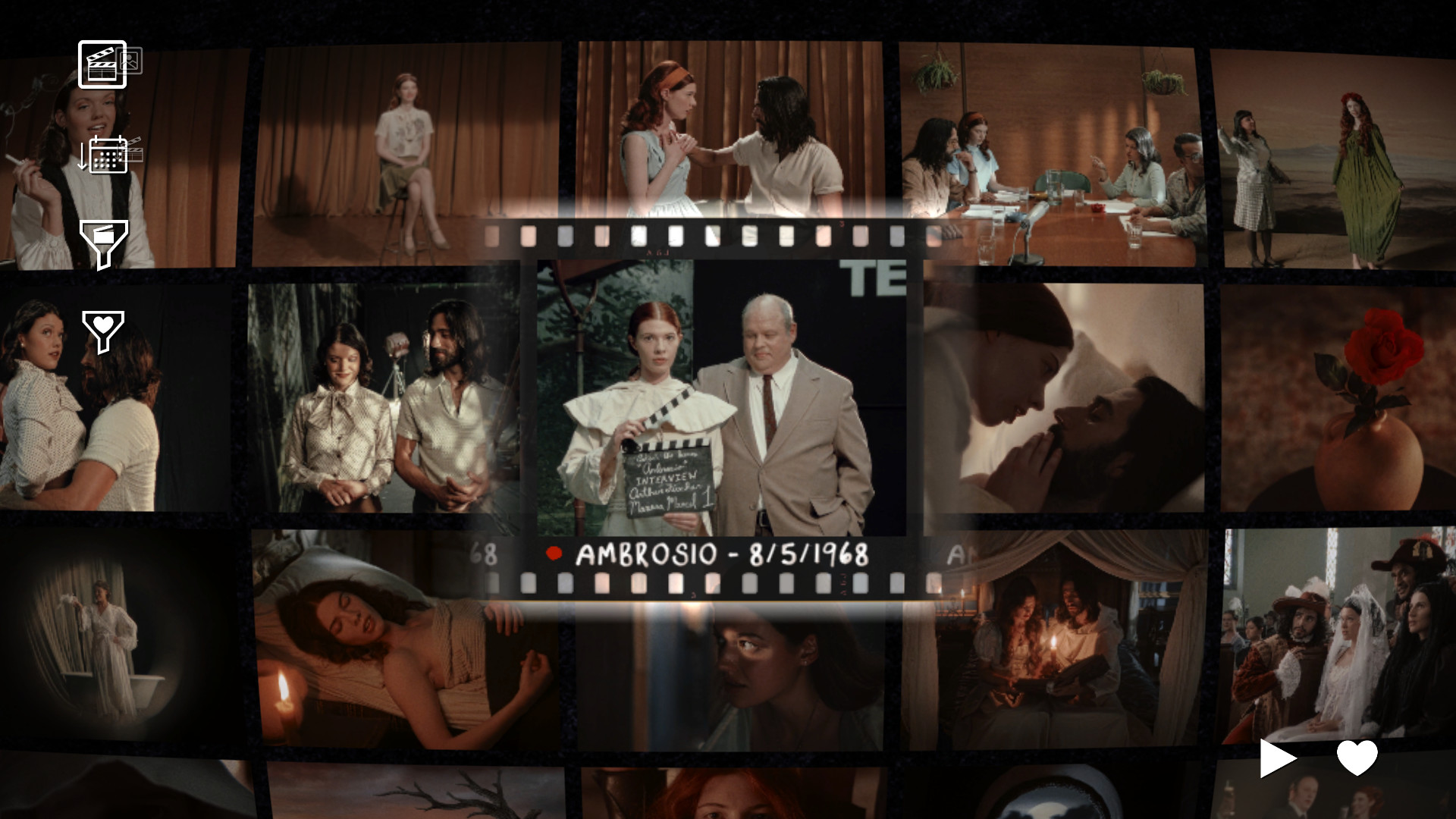
“I think a part of what we’re doing when we say we’re deconstructing cinema is looking at how some motifs follow, maybe an artist more so than staying contained within the movies themselves. I think that’s also how we look at cinema production and who we consider auteurs, who do we credit with a film’s creative success?”
There’s no denying that Immortality is a vividly cinematic experience. The player is able to rewind footage and if you get it just right, you will uncover something sinister going on as well. And whilst it’s never scary, it’s a deeply unsettling experience.
“We wanted to set up and encourage you to feel like you’re in control of this stuff, give you this ability to navigate it in a way that also makes you feel like you had some agency. And then with some of those other elements, the horror elements, suddenly push back against that, and make things misbehave and make things act in a way that was slightly less predictable, to fuck with you.”
Barlow and Watson are currently working on a version to be released via Netflix’s gaming platform and Netflix pops up often in our conversation, especially as we talk about how much control we have over the narrative and how the film aspect relates to this.
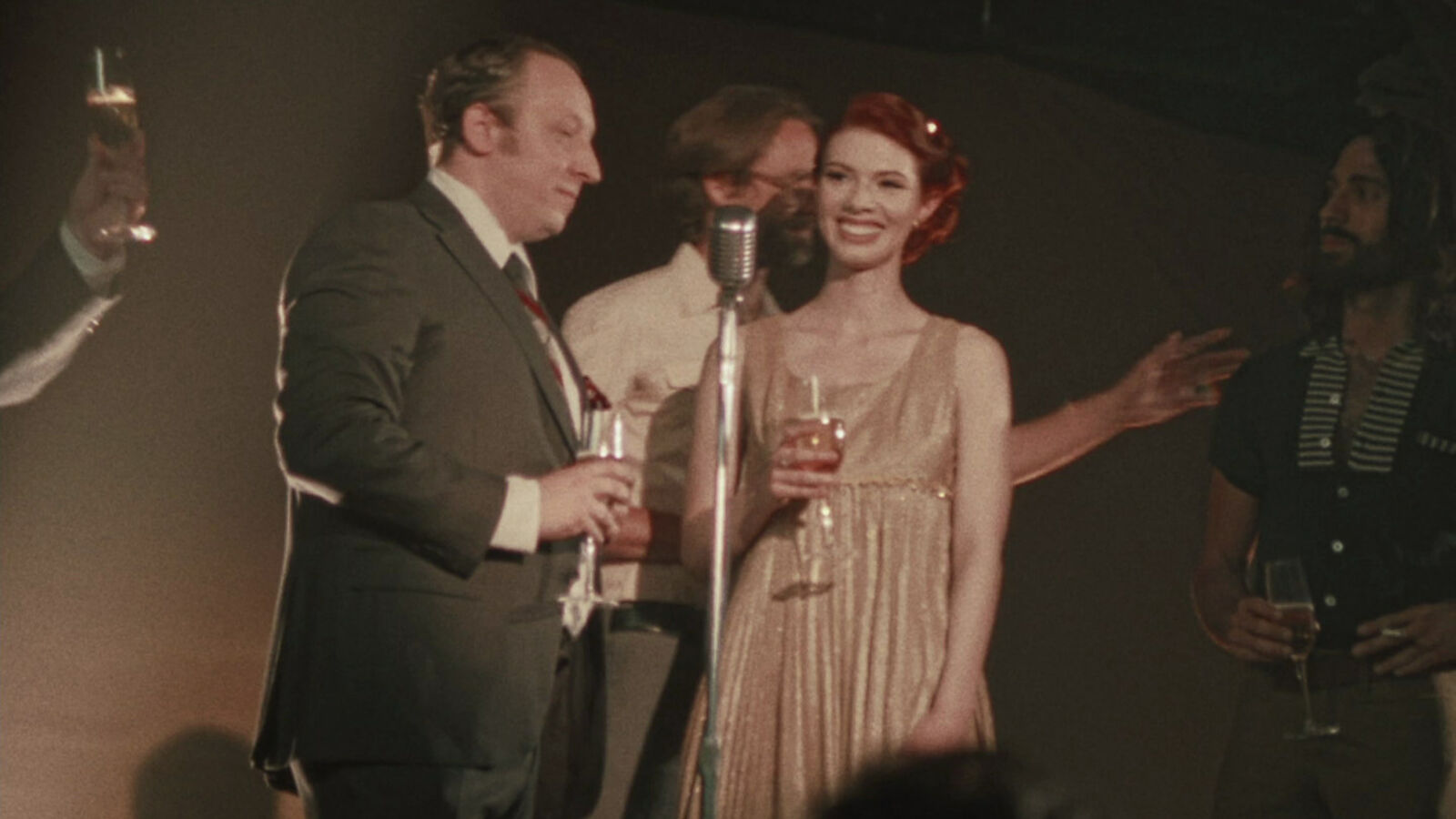
“With the last few games I’ve made, there has been me consciously questioning, when we say you have agency in a game and that you have meaningful choices. That’s been something I’ve been really interested in, completely removing this idea of causality in a system; the idea that what I do will fundamentally change things in the game, because I feel like a lot of times, the best places for that to happen are in the most trivial aspects of the game.”
Indeed, the player is completely helpless in Immortality. There is no helping Marissa, who encounters plenty of toxicity in the industry. Barlow draws parallels between games in general, Immortality’s format and the films of Hitchcock, which in many ways feels appropriate.
“All these level designers are crafting these levels, where you feel like you’re in control but actually you are being fed, in the same way that you go watch a movie and your gaze is being directed around a screen. In a Hitchcock movie, you’re being made to think things and anticipate things, as he kind of lays the little breadcrumbs of his suspense.”
According to Watson, Immortality has about 8 -10 hours of footage. “Every aspect had a significance to it, had a value, had an importance to the point where we could not afford to lose a single scene, every scene was intentional and designed like a game level.
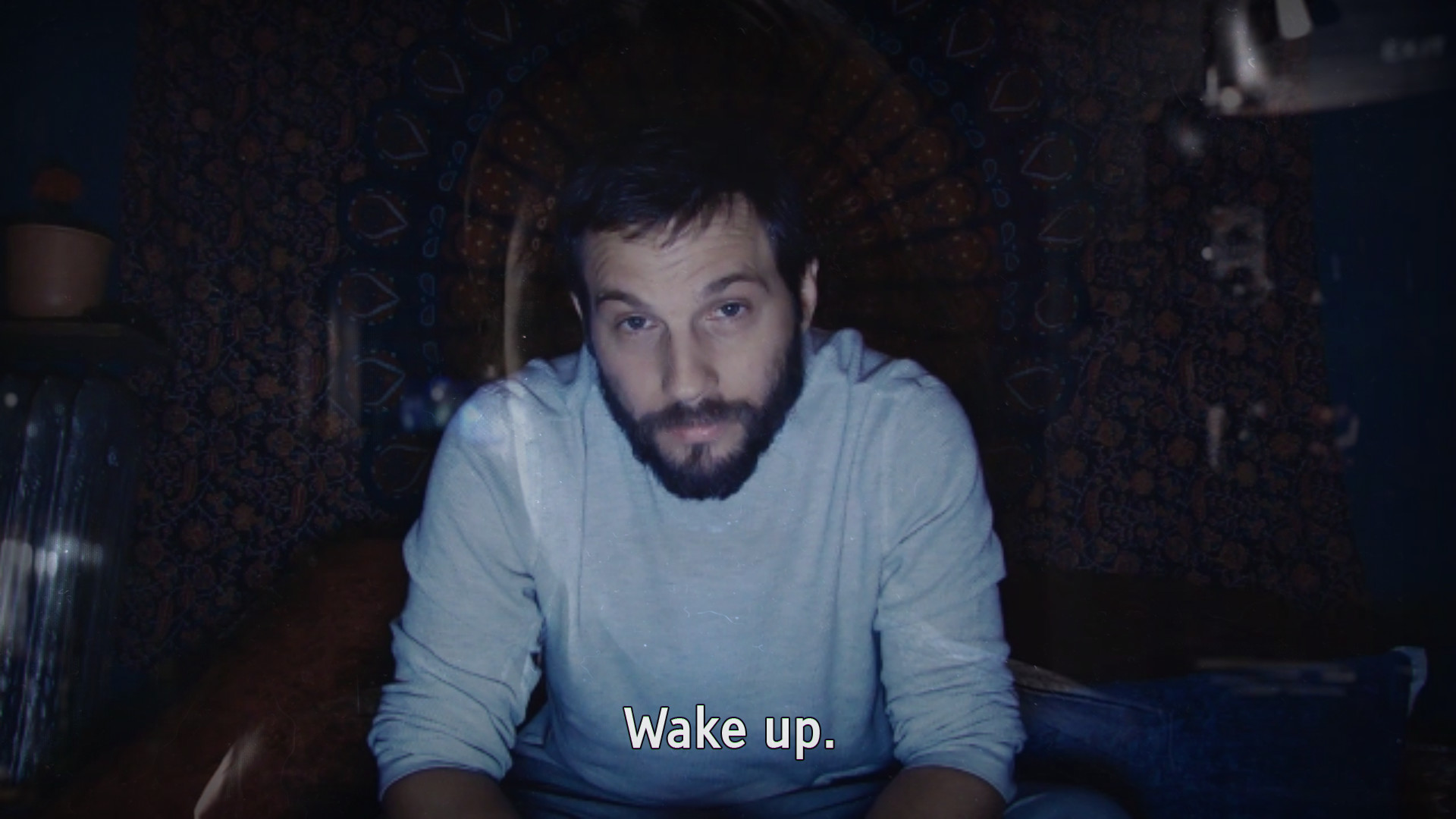
Telling Lies starred Logan Marshall-Green as the main protagonist
“The game is meticulously designed, but it’s not scripted. So in a way, the hooks that you land in are meant for you and may not necessarily be the same for every person. If you’re following a certain thread, you may land in a place that emphasises or highlights the plot you’re seeking. Whereas somebody may enter the same clip from a different place and they may land on a different hook than you. That was definitely one of the question marks as the game was coming out. Will people be okay with feeling a little lost at first and questioning a lot,” Watson says.
So, who is Immortality aimed at? It may be too passive and cinematic for gamers but too game-y for cinephiles.
“The answer that I’ve heard Sam give a lot is, if you have both a Criterion and a Shudder subscription, this game is for you. If you have a Game Pass subscription even better,” Watson tells me and continues to say that an ideal player is willing to be uncomfortable and comfortable with ambiguity.
Game Pass is exactly how I came across the game, but it’s an unusual release tactic. It’s not every day you see a game from an established developer like Barlow be released onto a subscription service without any extra fees.
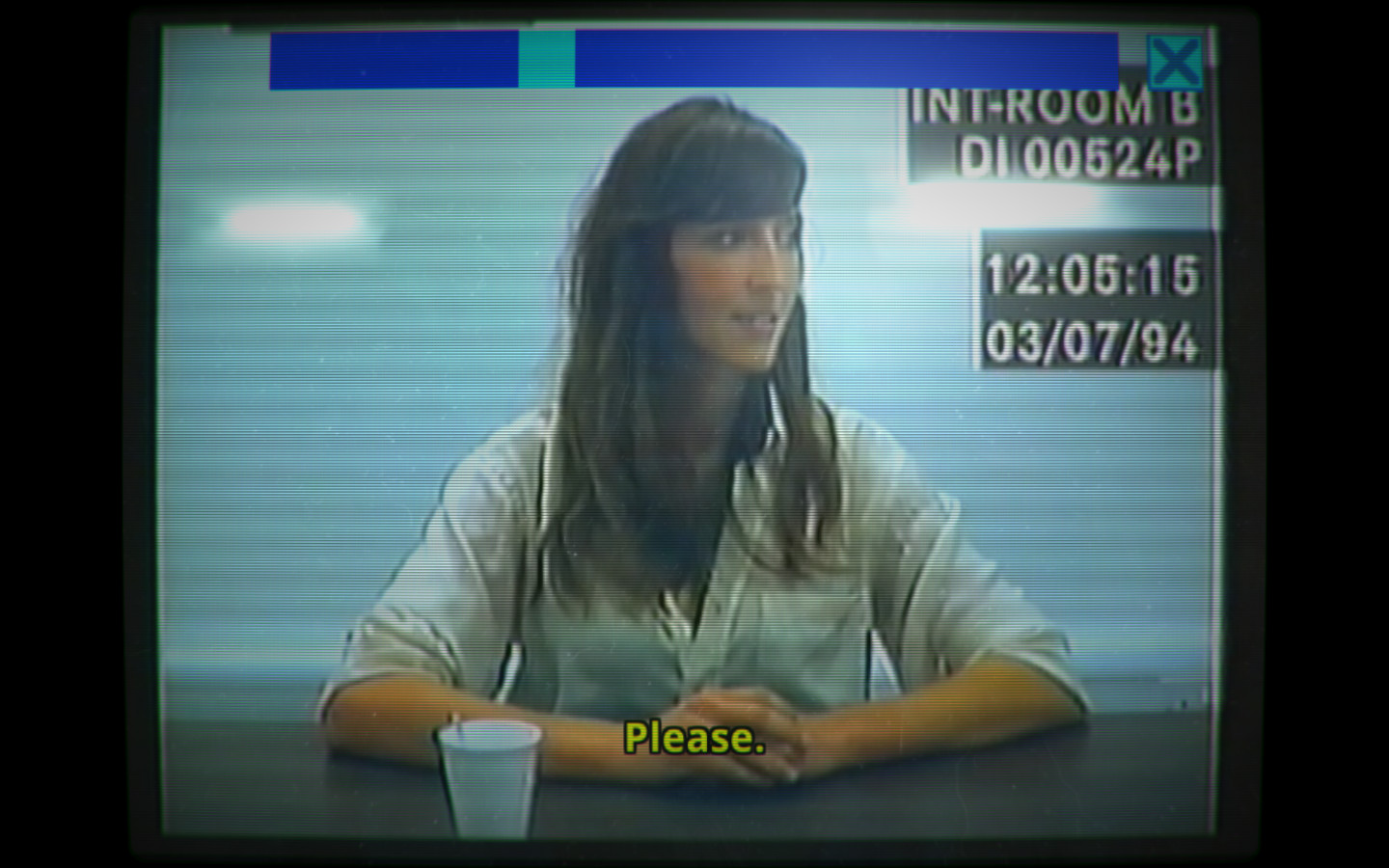
Her Story was set in a police interrogation room
“Sam and I knew this was going to be a game that people wanted to talk about and talk to each other about. We wanted to just make that conversation as big as possible and give people as many avenues to talk about it,” Watson comments on the move.
Making a game this accessible seems very novel, especially when Naughty Dog has just released their remake of The Last Of Us Part I, which will cost players around $70, although the game already has had one remaster and the cost of the remake has been a highly debated issue.
“You make something and you have no idea if people are going to pick up on something or even the experience itself and to see that reflected in people’s experience of the game has been so rewarding,” Watson says.
I gently enquire whether they’re already thinking of the next game, although they are still working on the version of Immortality that’ll be available on Netflix. While both agree it’s time for a break and Watson says they’ve already had discussions of the next one, Barlow is perhaps a little hesitant about what kind of a game he wants to do next.
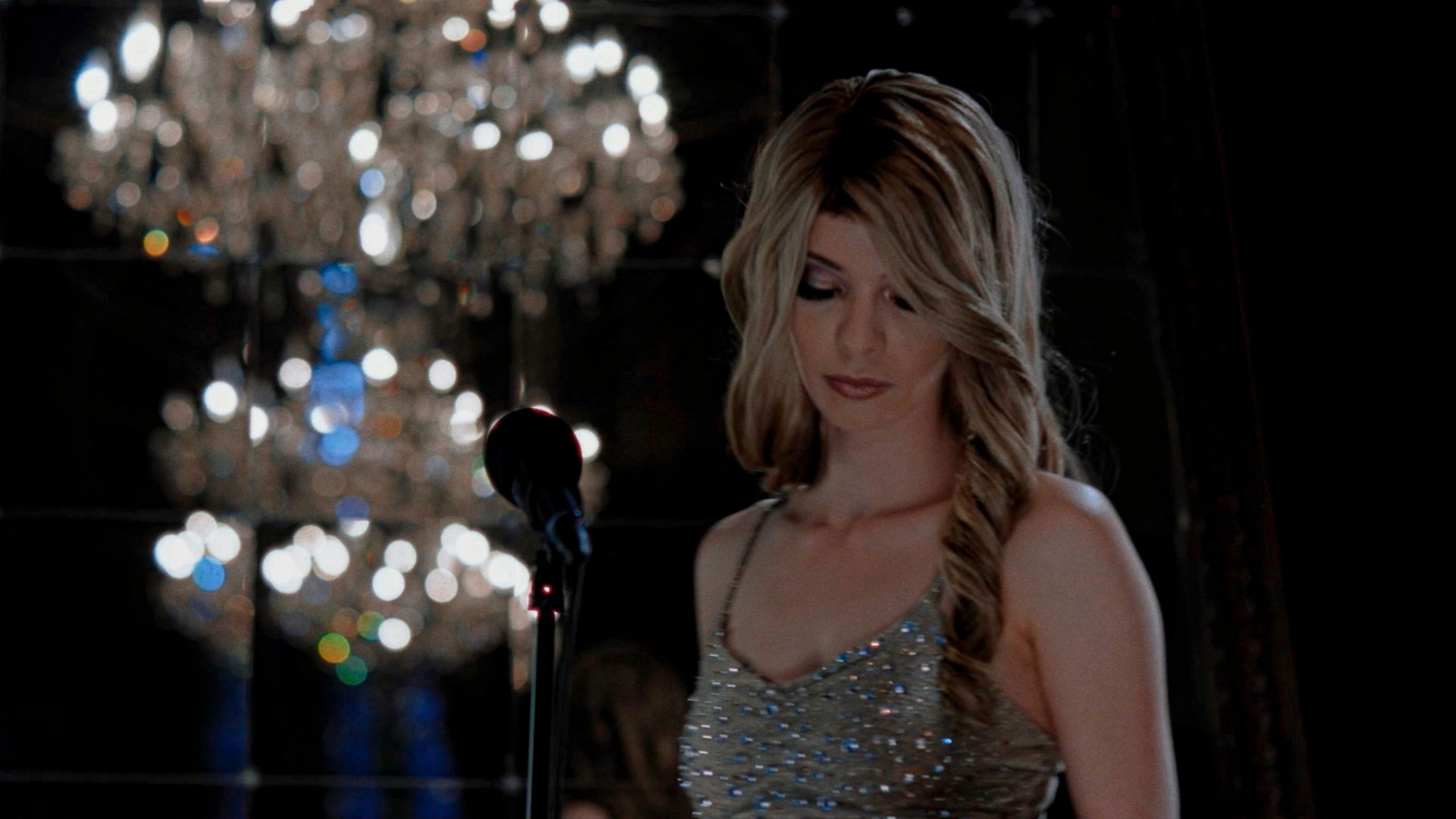
He tells me he read a review of Immortality that ended with the critic saying they had no clue where Barlow could go next and that got to him a little.
“There are a whole bunch of people who just think of me as the guy that does ‘FMV’ (full-motion video) games. I’ve done other stuff as well. The reception to this one has been beyond what we were expecting. Now, suddenly, I feel terrified about doing something after this, but here’s also quite a bit of ‘Let’s try to be even more ambitious’.”
Even more ambitious than the genre-mixing, format-challenging Immortality? If Barlow’s body of work is anything to go by, we can be certain Half Mermaid will continue to break new ground in terms of narrative storytelling in video games.
